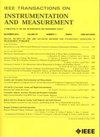用于无人飞行器下密集多向麦穗检测的无锚精炼特征金字塔网络
IF 5.6
2区 工程技术
Q1 ENGINEERING, ELECTRICAL & ELECTRONIC
IEEE Transactions on Instrumentation and Measurement
Pub Date : 2025-02-20
DOI:10.1109/TIM.2024.3502719
引用次数: 0
摘要
本文章由计算机程序翻译,如有差异,请以英文原文为准。
An Anchor-Free Refining Feature Pyramid Network for Dense and Multioriented Wheat Spikes Detection Under UAV
The number of wheat spikes is a crucial index for evaluating the yield, and the precise detection of wheat spikes in an image plays an important role. Among various methods, deep learning-based approaches show impressive results in the task of wheat spike detection. However, the precise detection and recognition of wheat spike encounters large challenges due to complicated backgrounds, arbitrary orientations, and dense distribution in wheat spike images. To alleviate these issues, we have developed an anchor-free refining feature pyramid network (AFRFPN) that gets rid of horizontal bounding boxes (HBBs) from the network. First, the refining feature pyramid network (RFPN) has been introduced into extract richer features of wheat spike with highly variant appearances and multiple scales. Then, learning from the idea of coarse-to-fine, the two-stage anchor-free oriented detection (AFOD) module has been designed. The AFOD module first generates a set of coarse detection (CoDet) results in the way of anchor-free and then further fines them to achieve high-quality predicting bounding boxes (BBs). The number of wheat spike images is insufficient, resulting in poor performance of wheat spike detection modules. To mitigate the lack of the data in the task of oriented wheat spike detection, based on the global wheat head detection (GWHD) dataset, we released a new large-scale wheat spike dataset by relabeling the samples, termed it as rotated GWHD (R-GWHD) dataset. Massive experiments show that the proposed method can achieve 90.6% mAP and 96.7% recall, outperforming other state-of-the-art methods. Additionally, the experiments related to the counting of wheat spikes have been conducted, showing that the developed module can achieve the MAE of 4.95 and RMSE of 7.68, which demonstrates the excellent performance of the proposed method.
求助全文
通过发布文献求助,成功后即可免费获取论文全文。
去求助
来源期刊

IEEE Transactions on Instrumentation and Measurement
工程技术-工程:电子与电气
CiteScore
9.00
自引率
23.20%
发文量
1294
审稿时长
3.9 months
期刊介绍:
Papers are sought that address innovative solutions to the development and use of electrical and electronic instruments and equipment to measure, monitor and/or record physical phenomena for the purpose of advancing measurement science, methods, functionality and applications. The scope of these papers may encompass: (1) theory, methodology, and practice of measurement; (2) design, development and evaluation of instrumentation and measurement systems and components used in generating, acquiring, conditioning and processing signals; (3) analysis, representation, display, and preservation of the information obtained from a set of measurements; and (4) scientific and technical support to establishment and maintenance of technical standards in the field of Instrumentation and Measurement.
 求助内容:
求助内容: 应助结果提醒方式:
应助结果提醒方式:


